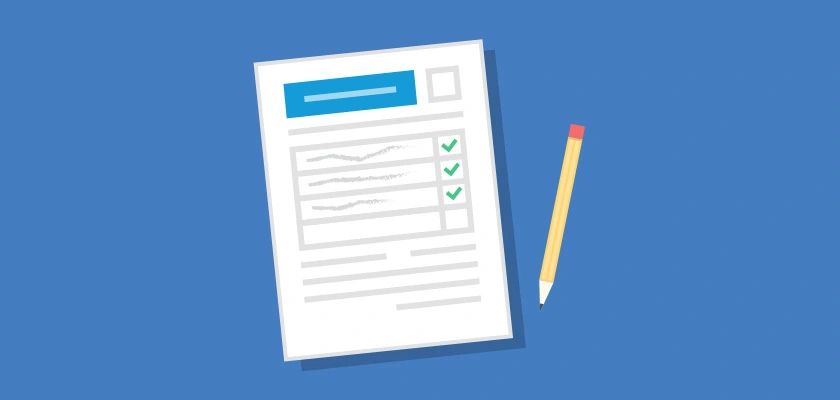Finding the right fleet software for your business can seem like a big task—there are a lot of options and you may not have a lot of time to decide. To help you narrow down your choices, here are nine important questions to ask vendors when vetting fleet management solutions:
1. Can the system support the size of my fleet?
It’s a common misconception that technology can always “flex” to support businesses of different sizes and needs. Some solutions certainly can, but others cannot. Make sure any fleet management system you’re considering is fully capable of handling a fleet of your size.
s it designed to manage hundreds of vehicles and you only have 10? Or vice versa? You shouldn’t have to find workarounds to scale the tools up or down, as needed. The fleet system should have functionality that fits your fleet size.
2. How will I get the insights I need to help me manage my fleet?
From a software development standpoint, it’s fairly easy to create a system that simply collects data. It’s much harder to create one that also analyzes and interprets data. Those analytics are critical to fleet management because they distill large amounts of data into actionable insights.
Ask your vendor about their analytics tools and how large amounts of information are summarized, reported, displayed in charts or dashboards, etc. Receiving too many notifications throughout the day can be overwhelming and staring at a spreadsheet of hundreds of thousands of data points makes it difficult to pinpoint issues. Using a fleet software solution that captures only the most important insights that can be used to help you predict risk and uncover ways to operate your fleet more efficiently.
3. Does the fleet management system integrate with other solutions?
Every business has multiple technology solutions that help it run smoothly, from HR solutions to CRM systems. To avoid disrupting operations and creating more work for employees, your fleet software needs to be able to smoothly integrate with your existing systems—your GPS, fuel management solutions, and driver safety programs, in particular.
Again, this shouldn’t require clumsy workarounds or patchwork tools. The fleet system you choose should make your job easier and act as a hub of data—it shouldn’t be just another disconnected system that requires separate processes.
4. Do I have to download software?
There’s nothing necessarily bad about having to download and install software, but ideally your fleet management system would be “in the cloud.” The benefits of having an online-based system are that it doesn’t take up storage space on your computers or servers, gets updated automatically (versus manually with desktop-based systems), and it’s more accessible (more on that in the next question). If a fleet control system does require downloading software, make sure you understand from the vendor how complicated it is to maintain and update the system.
5. Can I access the information from anywhere?
Fleet managers are on the go and can’t be locked to a desk. That means your fleet management system should be accessible anywhere, regardless whether you’re on a desktop, mobile, or even tablet. With cloud-based solutions, your fleet data goes where you do—as long as you have an internet connection, you can access the information you need.
6. Is the fleet management system user friendly?
If your fleet software solution isn’t easy to use, it will end up fading into nonexistence. The system should have logical navigation and workflows that employees in different roles can quickly understand and adopt. In a perfect world, the fleet management platform would also have a clean, intuitive interface and features designed for easy navigation.
To help determine user-friendliness, start by focusing on the most important features to your fleet and ask the vendor questions about that functionality. Can you find what you need quickly? Is it easy to customize? How can you access video if your system has vehicle cameras? Be sure to test drive the system yourself, too.
7. Are there different options to choose from?
With fleet management systems, there’s no such thing as “one size fits all.” Depending on the number of vehicles, day-to-day operations, and business needs, one fleet may prefer a different solution than another. You may want fleet tracking while another business wants a full driver safety program with a driver coaching workflow. Your vendor should be able to offer different ways to package the fleet software to ensure it’s the best fit for your business.
8. Is video included in the fleet management system?
Vehicle cameras, more commonly referred to as dash cams, are becoming more prevalent in fleets. Forward-facing and driver-facing video integrated with telematics data can help you understand what’s happening in the field. Video gives context that’s critical for determining root causes of driving incidents, helps strengthen safety initiatives, and can even provide evidence to review when something goes wrong.
Ask your vendor if video solutions are offered with the fleet management system. If so, follow up with questions about whether the vehicle cameras include continual recording, if managers have on-demand access to videos, and how video is incorporated into traditional telematics data.
9. Can I see case studies from other companies?
You may find a few fleet management systems that seem like a good fit, but how do they perform out in the real world? Ask vendors for case studies from other companies—ideally in your vertical, but also those using the technology for the same needs and challenges as your fleet.
Get details on how clients have leveraged the fleet software to reduce costs, mitigate risk, increase productivity, and improve safety. The fleet control system should have a strong reputation and proven “road tests” in the industry.
In addition to these nine questions, you can use this telematics vendor checklist of the most important features to look for when vetting fleet managements systems.
Contact Lytx to get started with a fleet management solution that’s right for you.
